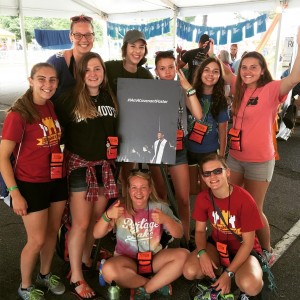Veronica Gilliard is a member of New Life Covenant Church in Atlanta, Georgia. She also serves as secretary of the Southeast Conference Women Ministries Executive Board. She is also currently a student, pursuing her PhD in Educational Leadership with a specialization in Higher Education. In her spare time she enjoys cooking, bowling, and reading.
 Groups that are ascribed inferior status are often delegated less power in the public eye. Women, in 2015, are still a perfect example of this notion. Whether we are discussing being paid cents on the dollar, still being rejected in some aspects of church leadership, or consistently being portrayed by the media as both hypersexualized and less intelligent than our male counterparts, the world has been clear in it’s message: women are second-class citizens, a means to an end.
Groups that are ascribed inferior status are often delegated less power in the public eye. Women, in 2015, are still a perfect example of this notion. Whether we are discussing being paid cents on the dollar, still being rejected in some aspects of church leadership, or consistently being portrayed by the media as both hypersexualized and less intelligent than our male counterparts, the world has been clear in it’s message: women are second-class citizens, a means to an end.
As frustrated as women are with the misogyny and patriarchy of our world, many of us are equally, if not more frustrated with an unlikely group – other women.
God made no mistakes when making us women. And God’s choice to do so makes us daughters of the King Most High, in short, princesses. While some of us think of this identity as a gift that vests us with agency, what we often witness when relating to other women about their own agency, or lack thereof, is more reminiscent of the typical fairy tale princess who is trapped and awaiting a dramatic rescue from her macho male hero.
While women will undoubtedly need male partners on this long journey toward equality, we ought not trade their voice for our own. Women must not prod men to speak up for them, on their behalf, in pursuit of equality, while they themselves remain quiet. Instead, we ought to partner with men while also unashamedly advocating for ourselves. But how do we effectively advocate for ourselves? It all goes back to relationships. Continue Reading »




The Church in the Round: An Image of Biblical Equality
Filed under: Book & Commentary
Jo Ann Deasy is an ordained Covenant pastor currently serving as the director of institutional initiatives and student research at the Association of Theological Schools in Pittsburgh, PA.
One of my favorite books on ecclesiology (that just means theology that focuses on the church) is Letty Russell’s The Church in the Round: Feminist Interpretation of the Church. Russell presents a single central image for her theology of church: the table. She draws on the biblical images of the eschatological banquet table, of Jesus dining with tax collectors and sinners, and of the last supper. This image of the church as a table, particularly as a round table, calls the church to be a place of equality, hospitality, and justice.
Russell draws on three specific table concepts to ground her work: a round table, a kitchen table, and a welcoming table. Perhaps central to these is the image of the round table. These images connect well with the Evangelical Covenant Church, a denomination that began with individuals gathered into small groups, perhaps around a table, to read and study the scriptures. It connects well with a denomination that emphasizes relationships and a sense of family, those who might be gathered in the kitchen for coffee and conversation. It connects well with a denomination that believes all who have faith in Jesus Christ should have a place at the table, an equal place regardless or race, gender, class, or age. Russell’s images evoke what is at the heart of the denomination and push us to consider the full implications of our commitment to the church as a fellowship of believers committed to the whole mission of God. Continue Reading »
Report This Post